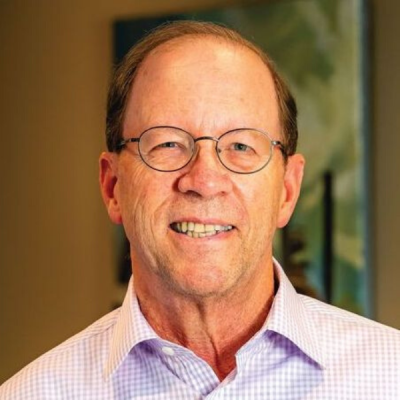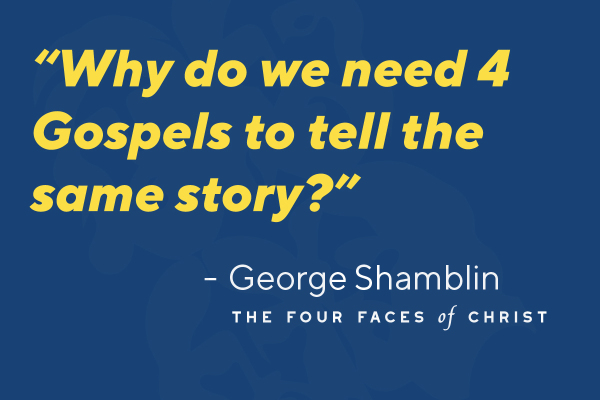Willful Blindness in the Sciences

In my research, I have found that willful blindness is quite common among atheists, particularly in the world of science.
One of the most prominent astronomers in the last century was Dr. Robert Jastrow. He received his PhD from Columbia University and then worked for a number of years at NASA, until taking a position at Dartmouth, where he taught for 11 years.
Jastrow was agnostic, but spoke of willful blindness in his book, God and the Astronomers. He described how scientists react when they encounter evidence they do not like. He says:
“Their reactions provide an interesting demonstration of the response of the scientific mind—supposedly a very objective mind—when evidence uncovered by science itself leads to a conflict with the articles of faith in our professions. It turns out that the scientist behaves the way the rest of us do when our beliefs are in conflict with the evidence. We become irritated, we pretend the conflict does not exist, or we paper it over with meaningless phrases.”
This is what so often happens in our lives when we encounter evidence that contradicts a long-held belief—we pretend the conflict does not exist. We become willfully blind and, in the process, become irresponsible in what we believe.
In his book The Creator and the Cosmos, astrophysicist Hugh Ross shares an interesting event in the life of Albert Einstein.
“It was 1916 and Albert Einstein didn’t like where his calculations were leading him. If his theory of General Relativity was true, it meant that the universe was not eternal but had a beginning. Einstein’s calculations indeed were revealing a definite beginning to all time, all matter, and all space. This flew in the face of his belief that the universe was static and eternal.
Einstein later called his discovery “irritating.” He wanted the universe to be self-existent—not reliant on any outside cause—but the universe appeared to be one giant effect. In fact, Einstein so disliked the implications of General Relativity—a theory that is now proven accurate to five decimal places—that he introduced a cosmological constant (which some have called a “fudge factor”) into his equations in order to show that the universe is static and to avoid an absolute beginning.”
Clearly, Einstein did not like the direction the evidence was taking him. To believe that the universe had a beginning, that it was finite, and therefore there was some type of cause behind it all would disrupt his life as a scientist. For this reason, he came up with a fudge factor. However, according to Ross this fudge factor did not last long.
“In 1919, British cosmologist Arthur Eddington conducted an experiment during a solar eclipse which confirmed that General Relativity was indeed true—the universe wasn’t static but had a beginning. Like Einstein, Eddington wasn’t happy with the implications. He later wrote, ‘Philosophically, the notion of a beginning of the present order of nature is repugnant to me… I should like to find a genuine loophole.’
By 1922, Russian mathematician Alexander Friedmann had officially exposed Einstein’s fudge factor as an algebraic error. (Incredibly, in his quest to avoid a beginning, the great Einstein had divided by zero—something even schoolchildren know is a no-no!) Meanwhile, Dutch astronomer Willem de Sitter had found that General Relativity required the universe to be expanding. And in 1927, the expanding of the universe was actually observed by astronomer Edwin Hubble (namesake of the space telescope).
Looking through the 100-inch Hooker telescope at California’s Mount Wilson Observatory, Hubble discovered a “red shift” in the light from every observable galaxy, which meant that those galaxies were moving away from us. In other words, General Relativity was again confirmed—the universe appears to be expanding from a single point in the distant past.
In 1929, Einstein made a pilgrimage to Mount Wilson to look through Hubble’s telescope for himself. What he saw was irrefutable. The observational evidence showed that the universe was indeed expanding as General Relativity had predicted. With his cosmological constant now completely crushed by the weight of the evidence against it, Einstein could no longer support his wish for an eternal universe. He subsequently described the cosmological constant as ‘the greatest blunder of my life,’ and he redirected his efforts to find the box top to the puzzle of life. Einstein said that he wanted to know how God created the world. ‘I am not interested in this or that phenomenon, in the spectrum of this or that element. I want to know His thoughts; the rest are details.’”
Do you see what Einstein had been doing? Initially, he was allowing his beliefs to shape the evidence in his research. Eventually, he realized that he must be honest and allow the evidence to shape his theories. Therefore, he changed his belief about the beginning of the universe and in the process Einstein discovered the theory of relativity.
This is why, later in life, Einstein made a very important observation about science. He said, “Most people think it is the intellect which makes a great scientist. They are wrong. It is their character.” Einstein recognized that the key to being a great scientist is to follow the evidence and the truth, wherever it leads you.
One of the most influential books of science in the last century was Thomas Kuhn’s The Structure of Scientific Revolutions. It was about the progress of scientific knowledge. Kuhn was a superb historian who focused on the great advances of science through which he called “revolutions,” which are so often hindered by holding on to old beliefs.
I think it is so easy to believe that scientists are immune to the influence of their own beliefs and biases as they do research. We have this presumption that scientists are dispassionate and unbiased individuals who are committed to the truth and always simply report the facts.
Kuhn’s book points out this fallacy, as his research into the history of science reveals that scientists are clearly not objective. He provides dozens of historical cases that prove researchers are far from being neutral and unbiased, particularly in testing and evaluating results. He makes it clear that scientists have a real tendency to hold on tenaciously to their theories, even though they face contradicting data.
The late Dr. Herbert Schlossberg, a leading historian and scholar, made this observation:
“Thomas Kuhn concluded that at a given time any scientific community will always have in its structure an element that is more will than intellect, a product of personal history.”
Back in August of 2014, David Brooks wrote an article in The New York Times titled “The Mental Virtues.” He refers to the book Intellectual Virtues by Robert Roberts and Jay Wood. In their book, they speak of the importance of having intellectual courage—the willingness to hold unpopular views. In the article, Brooks then makes reference to Kuhn:
“Thomas Kuhn pointed out that scientists often simply ignore facts that don’t fit with their existing paradigms, but an intellectually courageous person is willing to look at things that are surprisingly hard to look at.”
To gain some insight into the psychology of belief, consider C.S. Lewis. As a skeptic, he was quite surprised that his very intelligent friend J.R.R. Tolkien believed not only in God but Jesus as the Son of God. As Lewis began his spiritual search, he continued to gain new insights that were clearly in conflict with his current atheistic beliefs. He then became acutely aware of something that was happening to him. His intellect was taking him in a direction that his heart did not want to go. His mind was being drawn to that which he recognized to be true, but his heart was resistant. He later realized he was attracted to atheism because of the moral freedom it provided. He saw Jesus as someone who wanted to interfere with his life.
Lewis wrote an essay titled “Modern Man and His Categories of Thought.” Lewis remarks on how irrational people were becoming in their approach to their beliefs. In the audience where he was lecturing, he began to notice, “it is almost impossible to make them understand that I recommend Christianity because I think it is objectively true. But people today are simply not interested whether a religion is true or false…” Ultimately, he says, they are more interested in how it will impact their lives and their lifestyles.
In a recent Christian Post article, Op-ed Contributor Michael Murphy writes that “we are living in a time unprecedented in the lives of our forebears” and comments that “truth (is) being redefined.”
Do we not care about what is true? Are we afraid to look reality in the eye because it may take us in a direction we don’t want to go? I believe this is one of the great flaws in our human character. We stubbornly hold on to our beliefs because they generally reflect how we want life to be rather than how life actually is. For this reason, evidence does not seem to matter.
My challenge to you is to follow the truth wherever it leads, always remembering that truth is your friend. It enables you to believe responsibly. It leads to your ultimate well-being.
Get your copy of Richard’s newest book Reflections on the Existence of God on Amazon or at reflectionsontheexistenceofgod.com

Richard E. Simmons III is a Christian author, speaker, and the Executive Director of The
Center for Executive Leadership, a non-profit, faith-based ministry in Birmingham, Alabama.
His best-selling titles include The True Measure of a Man, The Power of a Humble Life,
Wisdom: Life's Great Treasure, and his newest book, Reflections on the Existence of God.
Follow Richard on Facebook, Instagram, and LinkedIn @thecenterbham. Tune in to
Richard's Reliable Truth Podcast on your favorite podcast app.





